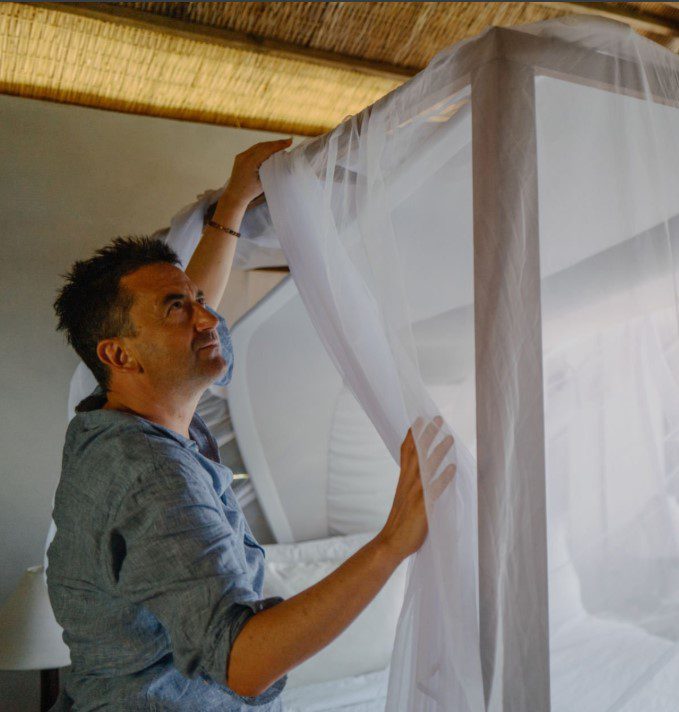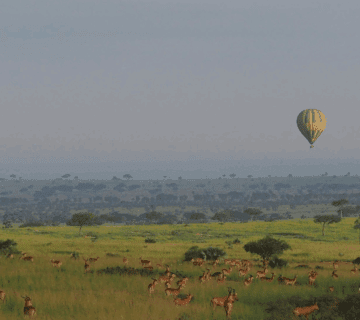How to Avoid Malaria on a Safari: Your Ultimate Guide to a Safe and Enjoyable Adventure
Safari adventures are often considered the pinnacle of wildlife exploration, offering unparalleled opportunities to witness nature in its rawest form. From the vast savannas of East Africa to the dense rainforests of Central Africa, the magic of seeing the “Big Five” and other incredible creatures in their natural habitat is a memory that will stay with you forever. However, like any outdoor adventure, safaris come with their own set of challenges and risks. One of the most common concerns for safari-goers is malaria. Thankfully, with proper preparation and knowledge, malaria can be avoided, ensuring your safari remains a safe and unforgettable experience. Here’s how you can protect yourself and enjoy every moment of your adventure without worry.
Understanding Malaria: A Serious but Preventable Disease
Malaria is a life-threatening disease caused by parasites transmitted through the bites of infected female Anopheles mosquitoes. While it is a major concern in many parts of Africa, it is also preventable with the right precautions. Malaria symptoms include fever, chills, sweating, headache, muscle aches, and fatigue, and if left untreated, it can be fatal. However, you don’t need to let this fear stop you from experiencing one of the world’s most thrilling journeys. By following a few simple steps, you can minimize your risk of contracting malaria and focus on enjoying the extraordinary wildlife and landscapes.
1. Consult Your Doctor Before Your Trip
Before embarking on your safari, it’s essential to visit a healthcare professional, preferably one who specializes in travel medicine. They can provide guidance on malaria risk in the region you’re visiting and recommend appropriate malaria prevention measures. You’ll likely be prescribed antimalarial medication, which should be taken before, during, and after your trip as directed. Depending on the destination, your doctor may recommend different medications, so make sure to start the medication regimen well before you depart.
2. Take Malaria-Prophylaxis Medication as Directed
Taking antimalarial medication is one of the most effective ways to prevent malaria during your safari. The specific medication you’re prescribed will depend on the region you’re traveling to and your personal health history. Some common options include chloroquine, mefloquine, and doxycycline. While these medications are highly effective, they must be taken according to the prescribed schedule. Don’t skip doses, and be mindful of any side effects. It’s a good idea to start the medication a few days before your trip and continue for several weeks after returning home.
3. Time Your Safari Wisely
Malaria is most prevalent during the wet seasons when mosquitoes breed in stagnant water. The peak transmission times are typically at dawn and dusk, when mosquitoes are most active. Understanding the best times to visit a destination can go a long way in reducing your exposure. For example, in East Africa, the dry season (typically between June and October) tends to have fewer mosquitoes, which reduces the risk of malaria. If you’re planning a trip during the rainy season, extra precautions will be necessary.
4. Wear Protective Clothing
Covering your skin is one of the easiest and most effective ways to protect yourself from mosquito bites. Long-sleeved shirts, long pants, and socks are your best friends when you’re out in the bush, especially in the evenings when mosquitoes are most active. Clothing made from tightly woven fabrics is ideal because it prevents mosquitoes from penetrating through. You can also purchase special mosquito-repellent clothing treated with permethrin, an insect repellent that further enhances your protection. If you’re heading to areas with a higher risk of malaria, don’t hesitate to layer up and keep your skin covered as much as possible.
5. Use Insect Repellents Liberally
In addition to wearing protective clothing, using insect repellents on exposed skin is crucial. Look for a repellent that contains DEET (diethyltoluamide), which is highly effective at deterring mosquitoes. Apply the repellent generously on any exposed skin, especially on the face, neck, arms, and legs. Make sure to follow the directions on the label for optimal use. Some people also prefer natural alternatives, such as citronella or eucalyptus oil, but these may not be as effective as chemical-based repellents in areas with a high risk of malaria. Don’t forget to reapply the repellent every few hours, particularly after sweating or swimming.
6. Stay in Malaria-Protected Accommodations
When choosing accommodation for your safari, opt for places that take malaria prevention seriously. Many lodges, resorts, and camps in malaria-prone areas are equipped with mosquito nets around beds, air conditioning, and insect screens on windows and doors. These measures are especially important when you are sleeping overnight, as mosquitoes tend to be most active at night. It’s also worth asking your accommodation provider about their malaria prevention protocols some places even use insecticide-treated nets or spray insecticides in the rooms and common areas. Choose well-established lodges and camps with a good reputation for malaria control.
7. Sleep Under Mosquito Nets
Even if your accommodation is equipped with mosquito screens, it’s still a good idea to sleep under a treated mosquito net, especially when staying in areas where malaria transmission is high. Mosquito nets, especially those treated with insecticides, are a barrier between you and the mosquitoes, ensuring a peaceful, bite-free night’s sleep. Make sure the net is properly tucked in and covers you completely to avoid any gaps where mosquitoes could sneak through.
8. Avoid Standing Water and Mosquito Habitats
Mosquitoes that carry malaria breed in standing water. This means that avoiding areas where stagnant water collects is an important precaution. Stay away from puddles, ponds, or lakes where mosquitoes might breed, especially during the rainy season. Your safari guide or lodge staff can provide helpful insights into areas where mosquitoes are more likely to be active. Be cautious around marshy, humid environments, particularly during the early morning or late evening when mosquitoes are most active.
9. Maintain a Healthy Immune System
A healthy immune system can help your body fight off any potential infections. It’s essential to stay hydrated, get plenty of rest, and maintain a balanced diet during your safari. Staying fit and healthy increases your resilience against diseases and ensures that you have the energy to fully enjoy your safari adventures. Carry a small first aid kit with essential items such as antihistamines for bug bites and painkillers for any discomfort that may arise.
10. Monitor Yourself for Symptoms
Although malaria can be prevented, it’s still crucial to stay alert for any symptoms during and after your trip. If you begin experiencing symptoms such as fever, chills, or fatigue within a few weeks of returning from your safari, seek medical attention immediately. Malaria can be diagnosed through a blood test, and treatment is most effective when started early. Let your doctor know that you’ve been in a malaria-endemic area, as this will help them identify the issue more quickly.
Embrace the Adventure, Stay Safe
A safari in Africa is an experience like no other. The chance to witness wildlife up close, traverse stunning landscapes, and immerse yourself in nature is truly life-changing. While malaria is a valid concern, taking the right precautions ensures that you can fully enjoy your safari with peace of mind. By consulting your doctor, using malaria-prophylaxis medication, wearing protective clothing, using insect repellents, and sleeping under mosquito nets, you’ll significantly reduce your risk of malaria and be able to focus on what truly matters: the unforgettable moments of your safari.
So, prepare yourself with the right knowledge and precautions, embrace the adventure, and let Africa’s wilderness captivate your heart and soul. A malaria-free safari is a safe safari, and with the proper care, you’ll return home with memories of a lifetime.





